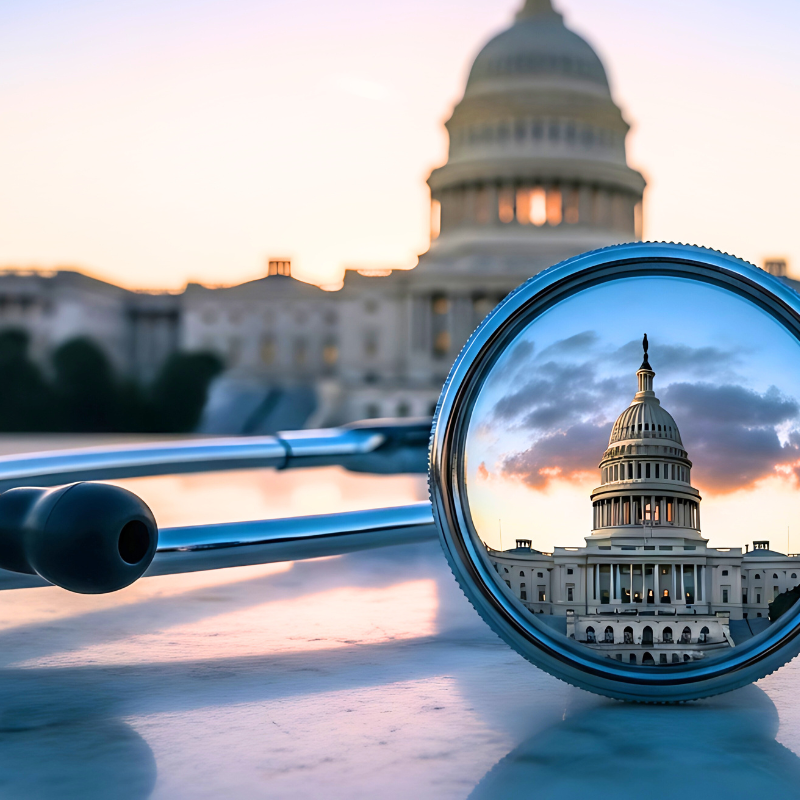U.S. healthcare professionals and providers may be concerned about how the current government shutdown will disrupt healthcare operations.
While Medicare and Medicaid will continue, essential functions like claims processing, provider oversight, and grant distribution could be delayed or suspended. Agencies like the Department of Health and Human Services (HHS), the Centers for Medicare & Medicaid Services (CMS), and the Food and Drug Administration (FDA) are experiencing staffing reductions, which are delaying regulatory approvals, inspections, and public health surveillance. The shutdown can also impact programs addressing social factors of health, such as food and housing assistance, which are crucial for access to healthcare and patient outcomes. In short, a government shutdown can cause operational and financial problems for the healthcare industry and disrupt many parts of the public health system.
Immediate Impacts on Healthcare Operations
Hospitals and Health Systems
- Delays or removal of reimbursement for telehealth services due to expired Medicare funding.
- Home Health programs can lose funding, forcing patient transfers.
- Medicare and Medicaid payments may be delayed.
Federally Qualified Health Centers (FQHCs)
- Delayed government reimbursements from grants and Medicare/Medicaid.
- Staffing cuts and limits on services due to delayed reimbursement and resulting cash flow impacts.
- Reduced industry oversight and available assistance.
Nonprofit Healthcare Providers
- Disruptions to federal grants affect programs such as mental and maternal health.
- SNAP and other social programs may be suspended.
Policy and Regulatory Delays During a Government Shutdown
Food and Drug Administration (FDA)
Due to legal restrictions on fee collections without active appropriation, the FDA cannot accept new applications for drugs, biologics, or medical devices. As a result, many companies are forced to delay submissions, which may postpone the availability of critical therapies and diagnostics.
During a shutdown, the FDA continues only activities deemed essential to public safety, such as:
- Monitoring outbreaks and foodborne illnesses
- Managing high-risk recalls
- Screening imported products
- Investigating imminent threats to human life
While most FDA staff are retained, they operate with a reduced workforce, limiting capacity for inspections, guidance development, and enforcement.
Centers for Medicare & Medicaid Services (CMS)
CMS may face significant operational slowdowns due to furloughs and suspended oversight. Oversight of key contractors, including call centers, IT vendors, and Medicare Administrative Contractors, is paused, disrupting claims processing, delaying customer service, and hindering fraud prevention. Most healthcare facility inspections, such as recertification and initial surveys, are also halted, causing delays in accreditation and compliance reviews for hospitals, ambulatory surgical centers, and long-term care facilities. These disruptions pose risks to patient safety and institutional accountability.
CMS also stops work on new policies and public outreach during a shutdown. With fewer staff, updating payment rules and other regulations takes longer. This can make it harder for patients and providers to understand coverage, benefits, and changes, especially during important times like open enrollment.
Centers for Disease Control and Prevention (CDC)
The CDC has to furlough most of its staff during a shutdown, which makes it much harder to track disease outbreaks, review health data, and share important public health information on time.
Key research and prevention programs, such as overdose prevention and state health department collaborations, may be delayed or halted, slowing the national response to emerging health threats. Without essential communication staff, health alerts and updates for providers and the public may also be delayed, creating gaps in awareness and preparedness.
What Services Continue and Overall Impact
Essential services like Medicare, Medicaid, and Veterans Affairs hospitals will keep running. The Health Insurance Marketplace will also process eligibility and enrollments, but the longer the shutdown lasts, the more these services could be affected.
If the shutdown is short, it may cause brief delays in paperwork, grant processing, and oversight, with little long-term impact.
However, an extended shutdown can place significant strain on the healthcare system, including:
- Delaying payments
- Halting public health surveillance
- Pausing research initiatives
- Creating uncertainty for providers on federal funding
The longer the shutdown continues, the more it puts patient care, public health systems, and the finances of hospitals, FQHCs, and nonprofits at risk.
How Can Withum Help?
Our dedicated team of healthcare professionals is here to help you navigate the specific implications of the government shutdown on your organization. We are committed to keeping you informed with timely updates on policy and regulatory developments and are available to provide strategic guidance and practical support to help you manage financial and operational challenges with confidence.
Author: Carlynn Troyanowski | [email protected]
Contact Us
For more information on this topic, reach out to Withum’s Healthcare Services Team.



